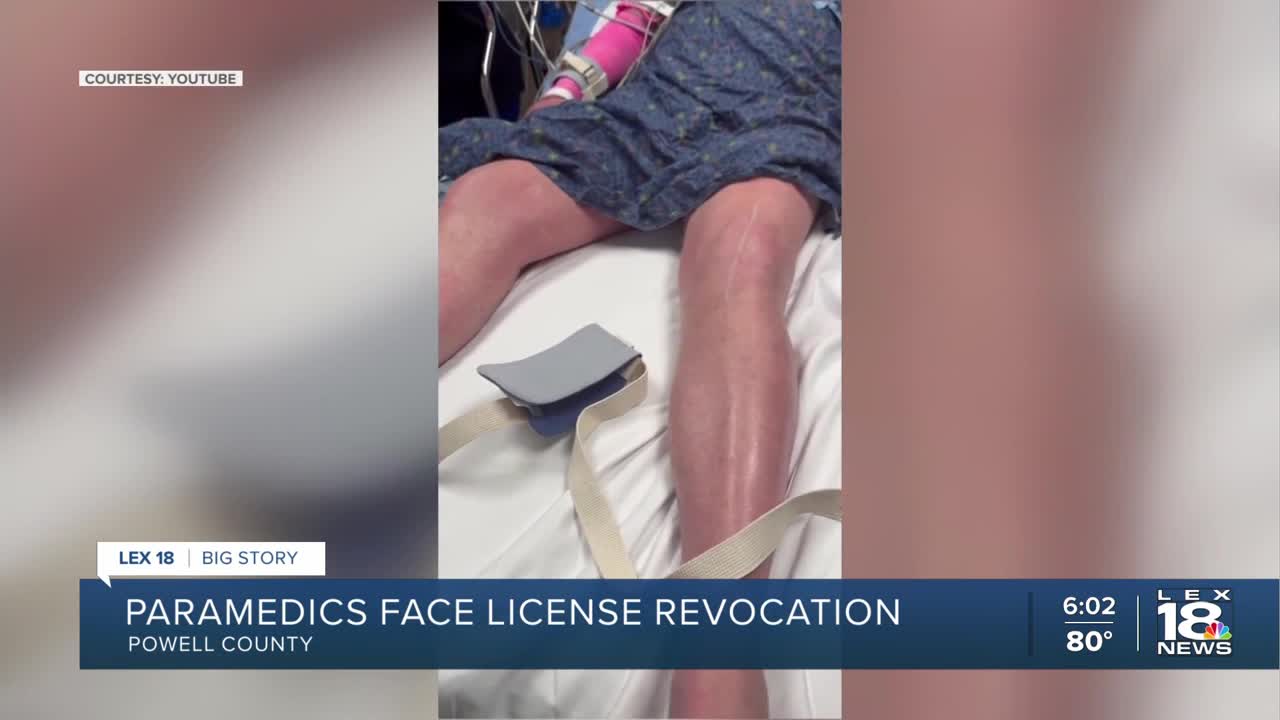POWELL COUNTY, Ky. (LEX18) — Two Powell County paramedics are in hot water after they say they saved a man's life using anti-venom after he was bitten by a highly venomous snake back in May. Now the two face the potential of their license being revoked.
World-renowned venomous snake expert Jim Harrison has been working with snakes for nearly 50 years. He and his wife, Kristen Wiley, run the Kentucky Reptile Zoo in Slade.
Back in May, Harrison was attempting to breed a male and female Jameson Mamba. Wiley says the female was spooked and jumped out of the enclosure, but when Harrison tried to return her safely, the male snake bit him.
Wiley says Harrison made sure all snakes were secure before taking medical action.
"It is very important for us to understand how the venoms work, what the treatment is, what can happen with various snake bites because we're here dealing with these animals. And so that's our responsibility to do that," said Kristen Wiley, who is the Kentucky Reptile Zoo director.
Powell County Judge Executive and paramedic, Eddie Barnes, was immediately informed of the situation. He met Harrison and another zoo employee at Exit 22 before driving to the airport to wait for a medical helicopter.
Time was not on their side.
"As we were waiting on the helicopter, the patient [Harrison] started telling me that we needed to give him the anti-venom. The patient had his own anti-venom," said Barnes.
The reason? Barnes says there are three stages to having that level of neurotoxin in the body.
"He said the first part of the stage is paralysis, second part is respritory arrest, third part is cardiac arrest. He said, 'I'm gonna die,'" Barnes breaks down.
Barnes tried calling his medical examiner, but he didn't answer.
"So second turn, we turned around and called Clark Regional Medical Center ER physician and talk to the doctor. He gave use permission to give that anti-venom," said Barnes.
Now, Barnes and another EMS worker are facing the possibility of a license revocation.
Two years ago, the Kentucky Board of Emergency Medical Services changed the protocol so that only wilderness paramedics can administer anti-venom services.
KBEMS released this statement:
"I will not speak about a particular case with the Board that hasn’t been resolved. However, I will inform you of how cases make it before the Preliminary Inquiry Board (PIB) that occurs a few times a year, including next week.
When the Board receives a complaint or an individual self-reports allegations of a potential violation of regulations, scope of care issues, or deviations from protocols, a case is opened, and a preliminary investigation is completed. As a matter of transparency and to assure consistent resolution, the PIB preliminary reviews investigative finding and determines whether a case warrants referral to a 13B Administrative Hearing for further action or dismissal.
Additionally, I would point out the following:
- The PIB is comprised of peers in the field of EMS who are in a unique position to put themselves in the shoes of those appearing before the PIB.
- The overwhelming majority of the cases are either dismissed or, if referred for a hearing, are resolved by agreed order which typically includes remedial education."
"I've always been taught by medical control. If a doctor orders you to do a procedure, you can do that procedure," said Barnes.
"I was very disappointed when I heard there was some kind of problem. In my mind, they did exactly what Jim asked them to do. Exactly what we have trained EMS to do," said Wiley.
A decision on the license revocation is scheduled for Tuesday, Sept. 30.





